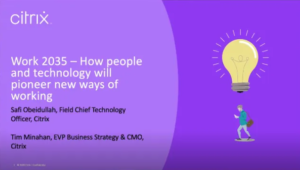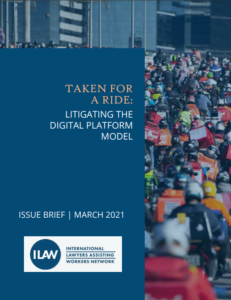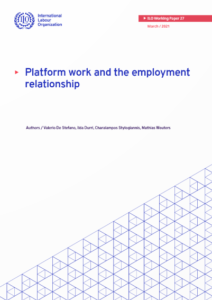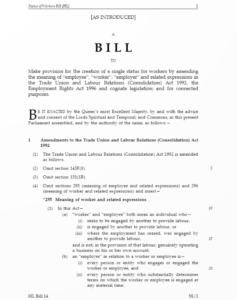Date of Publication: 25 May 2021
May 2021
Nowhere is our future more in flux than the future of work. The COVID-19 pandemic has forced
many organisations to revolutionise their ways of working almost overnight and brought the future
of work to the present. Remote work has become the “new normal,” and companies are making it
part of their long-term strategies to ensure business continuity. Work will never be the same again.
Yet it remains central to what it means to be human. Work gives us meaning and for centuries
labour, driven by both humans and technology, has enabled remarkable advances in human life
expectancy, prosperity and achievement. How will this relationship between the workforce, work
models and work environment evolve? And how can we as business leaders, policymakers and
individuals see further into the forces that will shape our future and bring about the future we want?
We asked some of the world’s most respected academics, business leaders and employees across
the US and Europe to join us in imagining what the future of work might look like in 2035, the
opportunities and threats it might hold, and how people and technology may work together to
generate value. This exercise raised the fundamental questions that must be faced by every business
and government organisation in their long-term strategic planning. How will workers be organised to
deliver value? How will people partner with technology and will we see the emergence of human-
machine teaming? What new opportunities will workers be afforded and what novel pitfalls will they
face? How might governments and supranational entities respond with regulation to support
workers and ensure competition in the new world of work? [View resource]
 Authors: Imraan Mahomed, Kelebogile Selema
Authors: Imraan Mahomed, Kelebogile Selema



 2021
2021
 Dough O’Brien and Jason Spicer.
Dough O’Brien and Jason Spicer.
 2021
2021
 Ngcamu, Shane Johnson and Keah Challenor.
Ngcamu, Shane Johnson and Keah Challenor.
 May 2021
May 2021
 June 2021
June 2021
 Authors: Valerio De Stefano, Ilda Durri, Charalampos Stylogiannis and Mathias Wouters.
Authors: Valerio De Stefano, Ilda Durri, Charalampos Stylogiannis and Mathias Wouters.
 Author: Institute of Employment Rights
Author: Institute of Employment Rights 